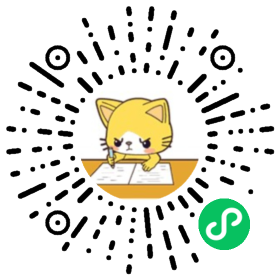【单选题】
1956年毛泽东在《论十大关系》中,从十个方面论述了我国社会主义建设需要重点把握的重大关系。其中前三条讲重工业和轻工业、农业的关系,沿海工业和内地工业的关系,经济建设和国防建设的关系。这里涉及的问题的实质是___
A. 建设社会主义要努力发展经济,提高生产力水平
B. 开辟一条和苏联有所不同的工业化道路
C. 实现社会主义工业化要照抄照搬苏联模式
D. 优先发展工业,特别是优先发展重工业
查看试卷,进入试卷练习
微信扫一扫,开始刷题

相关试题
【单选题】
毛泽东在《论十大关系》中论述的第一大关系,即重工业和轻工业、农业的关系。在《关于正确处理人民内部矛盾的问题》一文中,明确提出要走一条有别于苏联的工业化道路,提出的发展国民经济的总方针是___
A. 重工业及其基础设施的发展是我国经济建设的核心
B. 以农业为基础,以工业为主导,以农轻重为序
C. 具有现代农业、现代工业、现代国防和现代科学技术
D. 只有实现了国家工业化,才能实现私营工业国有化和农业集体化
【单选题】
毛泽东在《论十大关系》中指出:“特别值得注意的是,最近苏联方面暴露了他们建设社会主义过程中的一些缺点和错误,他们走过的弯路,你还想走?”这表明___
A. 除了借鉴苏联模式,还应该借鉴其他社会主义国家的经验模式
B. 建设社会主义要不断解放生产力,发展生产力
C. 社会主义道路应照抄照搬苏联模式
D. 建设社会主义必须根据本国国情走自己的路
【单选题】
《论十大关系》从十个方面论述了我国社会主义建设需要重点把握的重大关系。其中涉及经济体制改革关系的是___
A. 是非关系、中国和外国的关系
B. 国家、生产单位和生产这个人的关系,中央和地方的关系
C. 重工业和轻工业、农业的关系,沿海工业和内地工业的关系,经济建设和国防建设的关系
D. 汉族与少数民族的关系、党与非党的关系、革命和反革命的关系
【单选题】
毛泽东强调,关于正确处理人民内部矛盾是社会主义国家政治生活的主题,这一论断根本着眼点在于___
A. 丰富科学社会主义的理论和实践
B. 区分积极因素和消极因素
C. 走工业化道路
D. 调动一切积极因素,团结一切可以团结的力量,把全党的注意力转到社会主义建设上来
【单选题】
在探索适合中国国情的社会主义道路问题上,提出“两种劳动制度、两种教育制度”观点的是___
A. 刘少奇
B. 周恩来
C. 邓小平
D. 陈云
【单选题】
在马克思主义发展史上,第一个提到社会主义发展阶段问题的是___
A. 马克思
B. 恩格斯
C. 列宁
D. 斯大林
【单选题】
在世界社会主义发展的历史进程中,企图在社会主义建成不久就向共产主义过渡的始作俑者是___
A. 列宁
B. 斯大林
C. 毛泽东
D. 铁托
【单选题】
我国处在社会主义初级阶段,我们讲从实际出发建设社会主义,最大的实际就是___
A. 社会主义初级阶段的基本国情
B. 中国人口多、底子薄
C. 中国人均资源水平低的现实
D. 生产力发展极不平衡的状况
【单选题】
第一次提出社会主义初级阶段科学概念的是___
A. 1981年十一届六中全会通过的《关于建国以来党的若干历史问题的决议》
B. 1982年十二大政治报告
C. 1986年十二届六中全会决议
D. 1987年十三大政治报告
【单选题】
社会主义初级阶段是指___
A. 任何国家进入社会主义都要经历的起始阶段
B. 发达国家进入社会主义所要经历的起始阶段
C. 发展中国家进入社会主义都要经历的特定阶段
D. 我国在生产力落后、商品经济不发达条件下建设社会主义所要经历的特定阶段
【单选题】
社会主义初级阶段的起点是___
A. 1949年中华人民共和国成立后
B. 1956年社会主义改造基本完成后
C. 1978年党的十一届三中全会后
D. 1987年提出社会主义初级阶段理论后
【单选题】
我国社会主义初级阶段的时间跨度是指___
A. 从社会主义改造基本完成到基本实现社会主义现代化
B. 从社会主义改造基本完成到我国达到中等发达国家水平
C. 从中华人民共和国成立到社会主义改造基本完成
D. 从中华人民共和国成立到基本实现社会主义现代化
【单选题】
我们强调社会主义初级阶段的长期性,下列选项不是原因的是___
A. 社会主义社会是一个相当长期的、独立的社会形态
B. 我国是一个经济文化落后的国家
C. 在这个阶段需要对资本主义进行补课
D. 要防止急躁、冒进超越社会发展阶段
【单选题】
党的十六大报告中指出,在社会发展阶段上,我国___
A. 已经进入小康社会
B. 正处在由温饱到小康的转变过程之中
C. 正在全面建设小康社会
D. 正处于并将长期处于社会主义初级阶段
【单选题】
坚持党的基本路线不动摇,关键是___
A. 坚持四项基本原则不动摇
B. 坚持改革开放不动摇
C. 坚持以经济建设为中心不动摇
D. 坚持党的领导不动摇
【单选题】
坚持四项基本原则,核心是___
A. 坚持社会主义
B. 坚持马列主义、毛泽东思想
C. 坚持人民民主专政
D. 坚持党的领导
【单选题】
建设有中国特色社会主义文化的基本目标是___
A. 以马克思主义为指导,以培育有理想、有道德、有文化、有纪律的公民为目标,发展面向现代化、面向世界。面向未来的,民族的、科学的、大众的社会主义文化。
B. 坚持用邓小平理论武装全党,教育人民
C. 努力提高全民族的思想道德素质和教育科学文化水平
D. 坚持为人民服务、为社会主义服务的方向和“百花齐放、百家争鸣”的方针,重在建设,繁荣学术和文艺
【单选题】
社会主义初级阶段基本路线的核心和主体是___
A. 经济建设
B. 改革开放
C. 四项基本原则
D. “一个中心,两个基本点”
【单选题】
建设有中国特色社会主义政治的基本目标是___
A. 在中国共产党领导下,在人民当家做主的基础上,依法治国,发展社会主义民主政治
B. 坚持和完善工人阶级领导的、以工农联盟为基础的人民民主专政
C. 坚持和完善人民代表大会制度和共产党领导的多党合作、政治协商制度以及民族区域自治制度
D. 发展民主,健全法制,建设社会主义法治国家
【单选题】
建设有中国特色的社会主义经济的基本目标是___
A. 在社会主义条件下发展市场经济,不断解放和发展生产力
B. 坚持和完善以公有制为主体,多种所有制经济共同发展的基本经济制度
C. 坚持和完善按劳分配为主体的多种分配方式,允许一部分地区和一部分人先富起来,逐步走向共同富裕
D. 坚持和完善对外开放,积极参与国际经济合作和竞争。
【单选题】
我国社会主义初级阶段的主要矛盾,是___
A. 先进的社会主义生产关系与落后的社会生产力的矛盾
B. 无产阶级同资产阶级之间的矛盾
C. 人民日益提高的物质文化需要同落后的社会生产之间的矛盾
D. 经济发展国人口众多、资金短缺、资源贫乏的矛盾
【单选题】
社会主义改造基本完成后,国家政治生活的主题是___
A. 探索本国建设社会主义的道路
B. 不断解决仍然存在的敌我矛盾,同时正确处理人民内部矛盾
C. 正确处理人民内部矛盾
D. 集中力量解决人民对于建立先进的工业国的要求同落后的农业国现实之间的矛盾
【单选题】
在社会主义社会,生产关系与生产力,上层建筑与经济基础的社会基本矛盾的特点是___
A. 基本不适应
B. 完全适应
C. 部分适应,部分不适应、
D. 基本适应,部分不适应
【单选题】
毛泽东第一次系统地阐述社会主义社会矛盾问题的著作是___
A. 《论十大关系》
B. 《关于正确处理人民内部矛盾的问题》
C. 《矛盾论》
D. 《论人民民主专政》
【单选题】
社会主义改造任务基本完成后,全国人民的主要任务是___
A. 进行思想战线上的社会主义革命
B. 坚持无产阶级专政下继续革命
C. 开展社会主义道路与资本主义道路的决战
D. 集中力量发展社会生产力
【单选题】
在探索我国社会主义建设道路问题上,第一次提出社会主义本质概念的是___
A. 刘少奇
B. 周恩来
C. 邓小平
D. 陈云
【单选题】
与传统社会主义观念相比较,邓小平关于社会主义本质的论述最突出的特点体现在___
A. 解放生产力,发展生产力
B. 消灭剥削
C. 消除两极分化
D. 最终达到共同富裕
【单选题】
社会主义和资本主义的本质区别是___
A. 生产力的性质和发展水平不同
B. 社会基本矛盾不同
C. 生产关系和上层建筑的不同
D. 意识形态的不同
【单选题】
邓小平多次指出,在经济改革中,我们必须始终坚持的两条根本原则是___
A. 不断发展生产,增加社会财富
B. 扩大改革开放,增强综合国力
C. 实行按劳分配,改善人民生活
D. 坚持公有制为主体,实现共同富裕
【单选题】
邓小平认为,在社会主义建设过程中,长期以来没有完全搞清楚的问题是___
A. 什么是社会主义现代化
B. 什么是社会主义,怎样建设社会主义
C. 什么是社会主义公有制
D. 什么是计划经济
【单选题】
邓小平认为,体现社会主义本质的最大的社会主义优越性就是___
A. 高速发展生产力
B. 各尽所能,按需分配
C. 共同富裕
D. 让一部分人先富起来
【单选题】
邓小平认为,衡量社会主义经济政策对不对的压倒一切的标准是___
A. 人们的社会主义思想觉悟有没有提高
B. 生产力是否发展,人民收入是否增加
C. 人们的经济收入差距是否不断缩小
D. 人们的社会主义道德素质有没有提高
【单选题】
在社会主义本质理论中,社会主义的根本目标是___
A. 解放和发展生产力
B. 消灭剥削
C. 消除两极分化
D. 实现共同富裕
【单选题】
两步走的发展战略是___提出的
A. 十二大
B. 十三大
C. 十四大
D. 十五大
【单选题】
邓小平第一次明确提出分“三步走”,基本实现现代化的战略是在___
A. 1987年2月
B. 1987年4月
C. 1987年10月
D. 党的十二大召开前夕
【单选题】
“科技是第一生产力”的提出者是___
A. 马克思
B. 恩格斯
C. 列宁
D. 邓小平
【单选题】
根据“三步走”发展战略,我国到21世纪中叶的战略目标是___
A. 全面建成小康社会
B. 基本接近发达国家水平,生活比较富裕
C. 基本实现现代化,达到中等发达国家的水平
D. 物质文明与精神文明基本协调发展
【单选题】
实现中国梦的根本途径是___
A. 中国特色社会主义道路
B. 弘扬中国精神
C. 凝聚中国力量
D. 坚持实干兴邦
【单选题】
实现全面小康社会的目标,最根本的是___
A. 以经济建设为中心,大力发展生产力
B. 贯彻“三个代表”重要思想
C. 鼓励一部分地区、一部分人先富裕起来
D. 加强、改进党的建设
【单选题】
进入21世纪后,面对世界科技发展的大势,以习近平为总书记的党中央又提出了___
A. 科教兴国战略
B. 人才强国战略
C. 创新驱动发展战略
D. 加快科技改革开放的战略
推荐试题
【单选题】
民警蔡某在追捕一名持枪驾车逃离的杀人犯时,遇到了市民金某开车路过。关于本案,以下说法错误的是___。
A. 蔡某可以优先使用金某的汽车
B. 蔡某使用后应当及时向金某归还汽车
C. 蔡某所在的公安机关应当向金某支付适当的费用
D. 如果使用车辆造成了损失,应由蔡某所在的公安机关予以补偿
【单选题】
县级以上人民政府公安机关,为预防和制止严重危害社会治安秩序的行为,可以在一定的区域和时间,限制人员、车辆的通行或者停留,必要时可以实行___。
A. 戒严
B. 部分地区戒严
C. 交通管制
D. 现场管制
【单选题】
以下关于交通管制和现场管制,说法错误的是___。
A. 县级以上人民政府公安机关可以在必要时实行交通管制
B. 县级以上人民政府公安机关经同级人民政府批准,可以对危害社会治安秩序的突发事件实行现场管制
C. 公安机关的人民警察可以依照规定采取相应的交通管制措施
D. 公安机关的人民警察可以依照规定采取强行驱散、强行带离现场等现场管制措施
【单选题】
下列关于人民警察履行义务的做法不正确的是___。
A. 民警张某在日常设卡检查时,遇有孕妇魏某临产去医院的求助,立即予以救助
B. 民警钱某在派出所值班期间接到辖区居民因琐事发生斗殴的警情,立即出警处理
C. 民警赵某对前来请求帮助的债权债务关系人,告知其自行协商,若协商不成可以到法院提起民事诉讼
D. 民警孙某值班期间遇有犯罪嫌疑人前来投案,由于本单位没有管辖权,告诉其向有管辖权的公安机关投案
【单选题】
曾受过___的人员不得担任人民警察。
A. 行政处罚
B. 刑事处罚
C. 罚款
D. 行政处分
【单选题】
曾被___的人员不得担任人民警察。
A. 辞退
B. 撤职
C. 开除党籍
D. 开除公职
【单选题】
担任人民警察领导职务的人员应当具备___知识。
A. 治安管理专业
B. 侦查专业
C. 法律专业
D. 行政管理专业
【单选题】
所长甲指派民警乙对一起殴打他人案件开展调查,民警乙认为所长甲与被打人员有亲属关系,对所长的命令,___。
A. 必须执行
B. 可以变通执行
C. 可以暂缓执行
D. 可以拒绝执行,并向上级机关报告
【单选题】
人民警察对超越法律、法规规定的人民警察职责范围的指令,___。
A. 必须执行
B. 应当立即执行
C. 有权拒绝执行,并同时向上级机关报告
D. 可以变通执行
【单选题】
下列可以适用继续盘问的情形是___。
A. 宋某杀死仇人唐某后到公安机关自首
B. 许某入室盗窃被接到报警赶到的民警当场抓获
C. 韩某携带大量假币乘车被查获且拒不交代身份信息
D. 逃犯冯某使用身份证登记入住宾馆被民警抓获
【单选题】
下列属于《反恐怖主义法》中规定的恐怖活动的是___。
A. 张某在宗教场所做祷告
B. 刘某感情失意,为泄愤而驾车冲撞广场上的行人
C. 讨薪无果,为给包工头压力,李某、孙某二人合谋策划并放火烧毁工地材料仓库
D. 黄某强迫妻子郑某在公共场所穿戴宣扬恐怖主义的服饰,尚不构成犯罪
【单选题】
根据《反恐怖主义法》的规定,下列说法错误的是___。
A. 通过恐吓的手段,胁迫国家机关,以实现其政治目的的主张和行为,可以被认定为恐怖主义
B. 恐怖活动组织,是指3人以上为实施恐怖活动而组成的犯罪组织。恐怖活动人员,是指实施恐怖活动的人和恐怖活动组织的成员
C. 认定恐怖组织和人员的机构只有国家反恐怖主义工作领导机构
D. 被认定的恐怖活动组织和人员对认定不服的,可以通过国家反恐怖主义工作领导机构的办事机构申请复核。复核决定为最终决定
【单选题】
根据《反恐怖主义法》的规定,()反恐主义工作领导机构和___人民法院可以依法认定恐怖组织和人员,
A. 国家 基层
B. 省级 中级以上
C. 国家 中级以上
D. 省级 基层
【单选题】
对于恐怖活动组织和人员的认定,下列说法不正确的是___。
A. 被认定的恐怖活动组织和人员对认定不服的,可以通过国家反恐怖主义工作领导机构的办事机构申请复核
B. 公安机关对于需要认定恐怖活动组织和人员的,应当向同级反恐怖主义工作领导机构提出申请
C. 有管辖权的中级以上人民法院在审判刑事案件的过程中,可以依法认定恐怖活动组织和人员
D. 金融机构对国家反恐怖主义工作领导机构的办事机构公告的恐怖活动组织和人员的资金或者其他资产,应当立即予以冻结
【单选题】
根据《反恐怖主义法》的规定,下列有关安全防范措施表述不正确的是___。
A. 邮政、快递等物流运营单位应当对客户身份进行查验
B. 长途客运业务的经营者不得向身份不明的客户提供服务
C. 生产单位应当对民用爆炸物品添加安检示踪标识物
D. 从事批发、零售各类刀具的单位和个人需要对客户进行实名登记
【单选题】
甲县公安机关发现辖区某公司内聚集了大量人员在参与极端主义活动,派员前往处置。下列做法不正确的是___。
A. 责令立即停止,强行带离现场并登记身份信息
B. 对参与人员一律予以行政处罚
C. 收缴宣扬极端主义的书籍、画册、海报
D. 查封该活动场所
【单选题】
根据《反恐怖主义法》的规定,下列关于重点目标的管理单位说法不正确的是___。
A. 应当安装公共安全视频图像信息系统,对视频图像信息保存期限不得少于90日
B. 应当对重要岗位人员进行安全背景审查。对有不适合情形的工作人员,调整工作岗位,并将有关情况通报公安机关
C. 对进入重点目标的人员、物品和交通工具进行安全检查中发现违禁品和管制物品,应当立即向公安机关报告,但无权扣留
D. 应当定期向公安机关和有关部门报告防范措施落实情况
【单选题】
根据《反恐怖主义法》的规定,下列关于技术侦察的说法正确的是___。
A. 甲县公安机关在侦查恐怖犯罪案件中,为获取有关证据,经过严格的批准手续,可以使用技术侦察措施
B. 技术侦察措施的适用对象是犯罪嫌疑人、被告人以及与犯罪活动直接关联的人员
C. 甲县公安机关依法采取技术侦察措施获取的材料,只能用于应对处置,不可以作为刑事诉讼的证据
D. 只有公安机关、国家安全机关、军事机关可以采取技术侦察措施
【单选题】
根据《反恐怖主义法》的规定,下列关于调查恐怖活动嫌疑措施的说法不正确的是___。
A. 公安机关调查恐怖活动嫌疑,可以通知了解有关情况的人员到公安机关或者其他地点接受询问
B. 公安机关调查恐怖活动嫌疑,经县级以上公安机关负责人批准,可以查询嫌疑人员存款、汇款等财产
C. 公安机关调查恐怖活动嫌疑,经县级以上公安机关负责人批准,可以责令恐怖活动嫌疑人员不得参加大型群众性活动或者从事特定的活动
D. 公安机关调查恐怖活动嫌疑,可以直接拘留嫌疑人员
【单选题】
根据《反恐怖主义法》的规定,甲县公安机关在调查恐怖活动嫌疑时,对恐怖嫌疑人员黄某采取约束措施,下列说法错误的是___。
A. 甲县公安机关可以采取电子监控、不定期检查等方式对黄某遵守约束措施的情况进行监督
B. 约束措施的期限不得超过3个月
C. 在采取约束措施期间发现犯罪事实的,应当立案侦查
D. 情况复杂,经上一级公安机关负责人批准,约束措施的期限可以延长1个月
【单选题】
A市公安机关民警小沈和小陈正在调查恐怖活动嫌疑,以下做法中,不正确的是___。
A. 可以通知了解情况的人员到公安机关或者其他地点接受询问,但其他地点只限于被调查人员所在单位、住处或者其提出的地点
B. 可以禁止嫌疑人员与特定的人员会见或者通信,期限不得超过3个月
C. 可以提取嫌疑人员的血液、尿液、脱落细胞等生物样本
D. 可以采取技术侦察措施
【单选题】
某县政府设立反恐怖主义工作领导机构,下列人员中,不可以担任指挥长的是___。
A. 该县反恐怖主义工作领导机构负责人
B. 该县反恐怖主义工作领导机构成员单位负责人
C. 该县人民政府负责人
D. 该县公安机关负责人
【单选题】
某县在发生恐怖事件后,县公安局的下列处置措施不正确的是___。
A. 立即进行处置,并向本级反恐怖主义工作领导机构报告
B. 由于尚未确定指挥长,由在场处置的公安机关职级最高的人员担任指挥员
C. 决定进入紧急状态
D. 处置时,应当优先保护直接受到恐怖活动危害、威胁人员的人身安全
【单选题】
A省的甲市、乙市、丙市夜间发生连环爆炸的恐怖事件,下列处置不正确的是___。
A. A省反恐怖主义工作领导机构决定由甲市、乙市、丙市的公安机关封锁爆炸现场和周边道路
B. A省反恐怖主义工作领导机构决定甲市进入紧急状态
C. A省反恐怖主义工作领导机构统一发布恐怖事件的应对处置信息
D. A省反恐怖主义工作领导机构确定甲市、乙市的公安局局长作为处置指挥长
【单选题】
恐怖事件发生后,下列应对措施中,错误的是___。
A. 当地人民政府向失去基本生活条件的受害人员及其近亲属及时提供基本生活保障
B. 公安机关在恐怖事件发生后立即发布应对处置信息,确保公民知情权
C. 卫生、民政等主管部门为恐怖事件受害人员及其近亲属提供心理、医疗等方面的援助
D. 公安机关对恐怖事件立案侦查,依法追究恐怖活动组织、人员的刑事责任
【单选题】
___行为:①编造、传播虚假恐怖事件信息;②报道、传播可能引起模仿的恐怖活动的实施细节;③发布恐怖事件中残忍、不人道的场景;④未经批准,报道、传播现场应对处置的工作人员、人质身份信息和应对处置行动情况的。
A. ①③④
B. ②③④
C. ②③
D. ①②③④
【单选题】
根据《反恐怖主义法》的规定,下列表述不正确的是___。
A. 国家反对一切形式的以歪曲宗教教义或者其他方法煽动仇恨、煽动歧视、鼓吹暴力等极端主义,消除恐怖主义的思想基础
B. 明知他人有恐怖活动犯罪行为,在司法机关向其调查有关情况、收集有关证据时,拒绝提供的,由公安机关作出行政处罚
C. 法律禁止制作、传播宣扬恐怖主义、极端主义的物品,但是并不禁止持有这些物品
D. 因在恐怖活动犯罪案件中作证,本人的人身安全面临危险的,经本人提出申请,公安机关应当对其采取必要的保护措施
【单选题】
根据《反恐怖主义法》的规定,下列情形,可以申请保护措施的是___。
A. 张某向公安机关举报李某策划实施恐怖活动,李某扬言报复
B. 杨某向公安机关提供郑某涉嫌犯罪的线索,郑某仍在潜逃中
C. 胡某在反恐部门工作,参与了一起涉恐案件的办理
D. 陶某为一起恐怖活动犯罪案件作证
【单选题】
下列有关反恐怖主义违法行为的说法正确的是___。
A. 张某通过制作并散发宣扬恐怖主义图书的方式宣扬恐怖主义,无论情节是否严重,只能对其行政处罚
B. 宋某强制他人在公共场所穿戴宣扬恐怖主义的服饰,由于情节轻微,公安机关可以对其作出行政处罚
C. 李某以不信任当前教育体系为由,不让自己儿子接受义务教育,而在家亲自教育。公安机关可以涉嫌利用极端主义胁迫未成年人不接受教育的行为对李某作出行政处罚
D. 陆某极端宗教思想严重,胁迫儿子和儿媳以宗教仪式取代结婚登记。由于事关信仰,公安机关不能追究其法律责任
【单选题】
根据《反恐怖主义法》的规定,下列说法正确的是___。
A. 尚未确定指挥长的,由在场处置的公安机关警衔最高的人员担任现场指挥员
B. 反恐怖主义工作领导机构负责人应当担任现场指挥长
C. 现场指挥员应当向指挥长请示、报告工作或者有关情况
D. 尚未确定指挥长,公安机关也未到达现场的,可以由在场处置的中国人民解放军军衔最高的人员担任现场指挥员
【单选题】
关于我国宪法规范说法正确的是___。
A. 我国宪法序言部分的规范没有效力
B. 宪法规范对公民的权利和义务的规定能够直接适用
C. 其他法律规范不得违反宪法规范
D. 民族自治法律规范可以变更宪法规范
【单选题】
《宪法》的修改,由全国人民代表大会常务委员会或者___以上的全国人民代表大会代表提议。
A. 五分之一
B. 三分之一
C. 三分之二
D. 五分之三
【单选题】
下列关于宪法的说法不正确的是___。
A. 宪法是党和人民意志的集中体现,是通过科学民主程序形成的根本法
B. 各级地方政府可以制发带有立法性质的规范性文件
C. 各政党都必须以宪法为根本的活动准则
D. 国家宪法日为每年的12月4日
【单选题】
中华人民共和国全国人民代表大会是___。
A. 最高国家行政机关
B. 最高国家权力机关
C. 最高国家审判机关
D. 最高国家监督机关
【单选题】
全国人民代表大会和全国人民代表大会常务委员会行使国家___。
A. 司法权
B. 行政权
C. 立法权
D. 检察权
【单选题】
中华人民共和国主席、副主席由___选举。
A. 全国人民代表大会常务委员会
B. 中国人民政治协商会议
C. 全国人民代表大会
D. 国务院
【单选题】
下列不由全国人民代表大会罢免的是___。
A. 中华人民共和国副主席
B. 国务院总理
C. 中央军事委员会主席
D. 最高人民法院副院长
【单选题】
(十二)根据最高人民检察院检察长的提请,任免最高人民检察院副检察长、检察员、检察委员会委员和军事检察院检察长,并且批准省、自治区、直辖市的人民检察院检察长的任免;8、根据《宪法》的规定,下列说法错误的是___。
A. 全国人民代表大会代表在全国人民代表大会开会期间,有权依照法律规定的程序提出对国务院的质询案
B. 全国人民代表大会代表在全国人民代表大会开会期间,有权依照法律规定的程序提出对国务院各部、各委员会的质询案
C. 全国人民代表大会常务委员会组成人员在任何时候,有权依照法律规定的程序提出对国务院或国务院各部、各委员会的质询案
D. 受质询的机关必须负责答复
【单选题】
全国人民代表大会代表在会议期间,非经___许可,不受逮捕或者刑事审判。
A. 全国人民代表大会常务委员会委员长
B. 全国人民代表大会常务委员会副委员长
C. 全国人民代表大会常务委员会
D. 全国人民代表大会会议主席团
【单选题】
根据《宪法》和法律规定,下列选项是正确的是___ 。
A. 中华人民共和国主席由全国人大常委会选举
B. 国务院对全国人大负责并报告工作,在全国人大闭会期间对全国人大常委会负责并报告工作
C. 最高人民法院、最高人民检察院对全国人大及其常委会负责
D. 中央军事委员会对全国人大负责并报告工作,在全国人大闭会期间对全国人大常委会负责并报告工作



